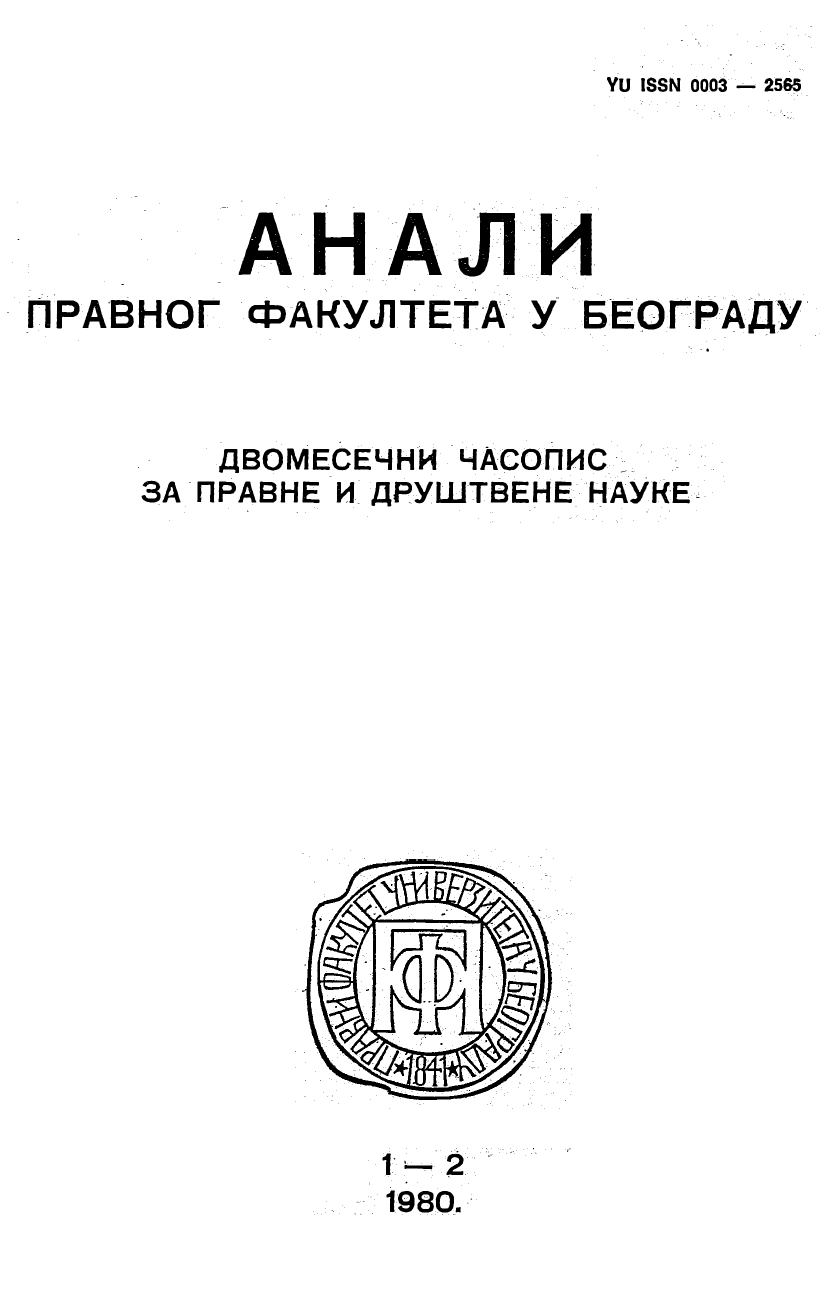О ЛЕГАЛНОСТИ ПРЕДМЕТА УГОВОРА У МЕЂУНАРОДНОМ ЈАВНОМ ПРАВУ
THE LEGALITY OF OBJECTS AND CONTRACTS IN INTERNATIONAL PUBLIC LAW
Author(s): Milenko KrećaSubject(s): Law, Constitution, Jurisprudence, International Law
Published by: Правни факултет Универзитета у Београду
Summary/Abstract: Taking the principle significance of the existence of criteria for the distinction of legal from illegal contracts in international public law as a point of departure, the author makes particular emphasis on the analysis of the concept of legality in classical and modem international law. He has found that the concept of legality in classical law was based on two premises: first, the principle of severeignity which was, in the Hegelhan tradition, regarded as a category which is not bound by any restrictions and out of which there is derived the right tô conclusion of contracts; second, the principle pacta sunt servanda which is defined as an absolute rule. The rules of international law as a factor of restriction of the freedom of conclusion of contracts were in that period subjective, of the eliminative nature. Due to the permissiveness of the use of force in international relations, the rules of international law, and, therefore, also the rules of contract law, were relative to a very high degree, so that in the period of classical international law there can not be any mention of actual, homogenous legality of international law. The quantitative changes an this respect begin with the constitution of universal political organisations — The League of Nations and the United Nations — in the Articles Nos. 20. and 103. of the Charter of which there is introduced a hierarchy of rules of positive international law. The concept of legality has formed its definite shape with the conceptualisation of cogent rules (norms) in the Vienna Convention on Contract Law (1969) in its Articles Nos. 53 and 64. Legality does not have its basis in the eliminative, subjective criteria established inter partes any more, but in the objective, will of individual states, therefore non-eliminative category. In this context the rule pacta sunt servanda also acquires its proper meaning — it ceases to be deus et machina of the international order capable of giving any context the form of a legal obligation. As a criterion for the distinction of legal from illegal contracts cogent rules do not restrict the freedom of conclusion of contracts, but the freedom of states to determine the object of the contract to suit its own will without taking the objective order into account.
Journal: Анали Правног факултета у Београду
- Issue Year: 28/1980
- Issue No: 1-2
- Page Range: 93-105
- Page Count: 13
- Language: Serbian

